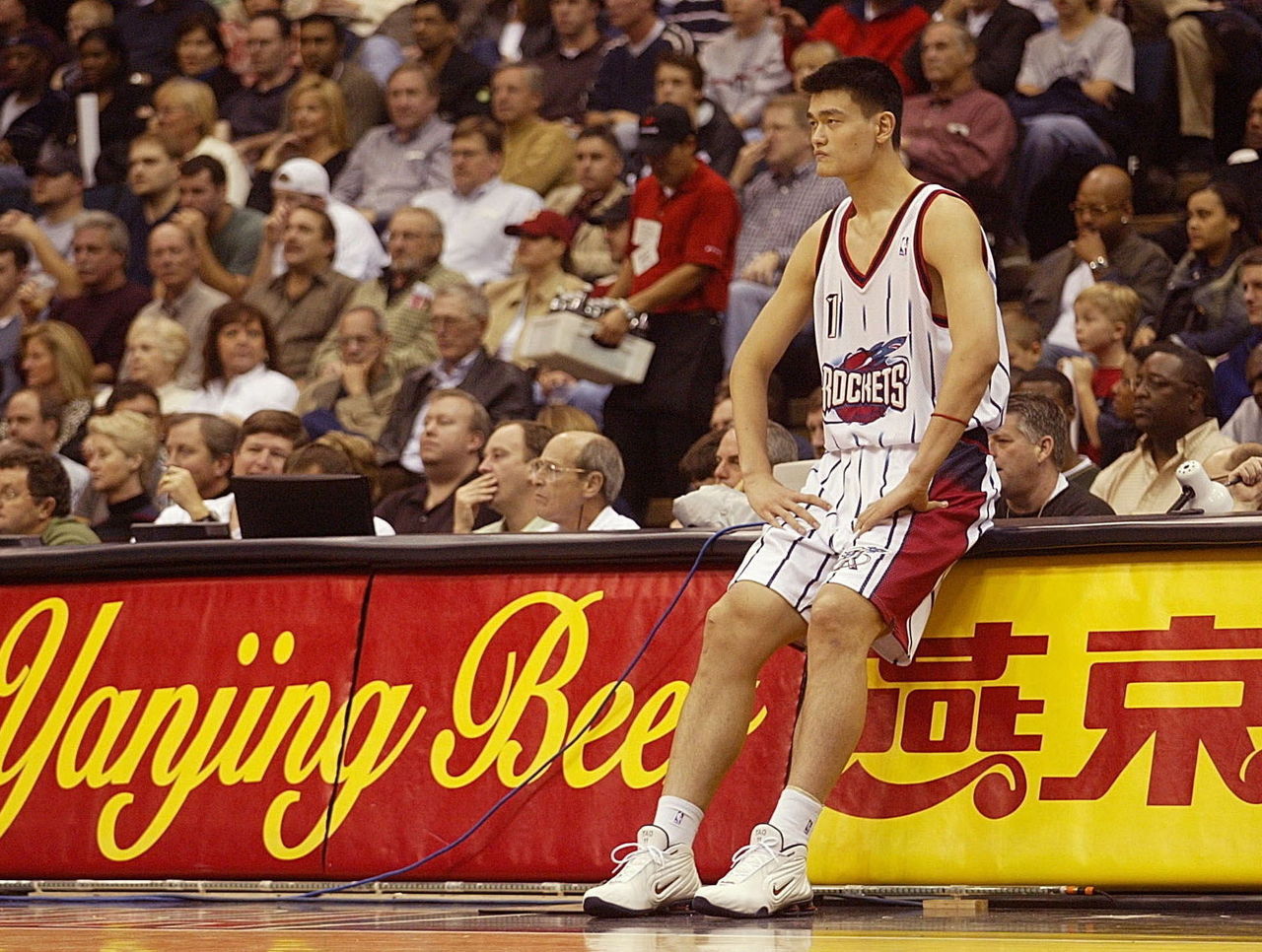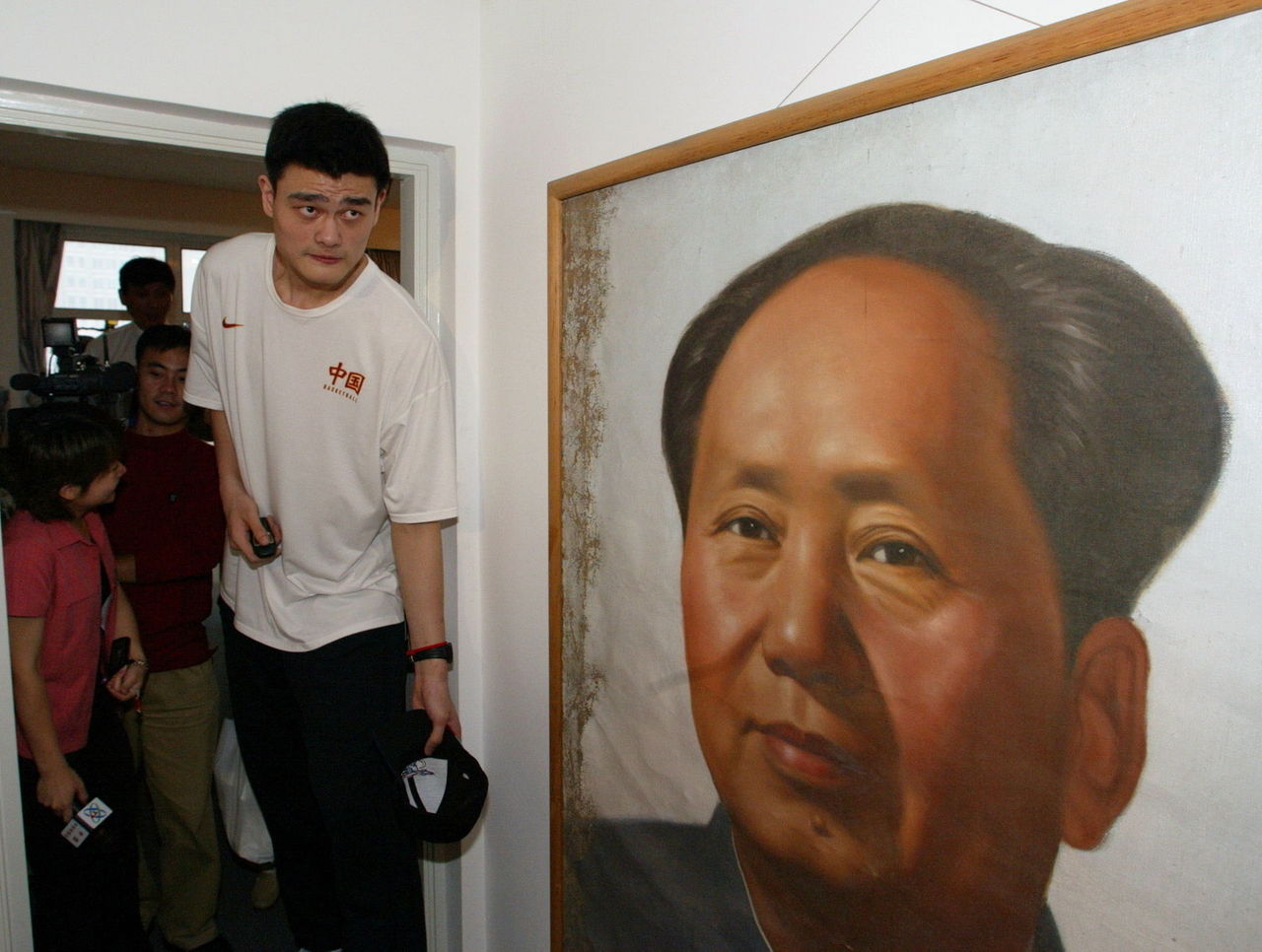Inducting Yao Ming into the Hall of Fame is a no-brainer
Yao Ming, the 7-foot-6 behemoth that sprouted from the humble corners of Shanghai, was always more than just a basketball player.
First, Yao was a prodigy. Having entered the professional ranks at the tender age of 13, superstardom was always his destiny. Then he became a legend, a scrawny teenage force who pulverized grown men to the tune of 39 points and 20 rebounds to snatch the Chinese Basketball Association title.
Then came the hard part: when Yao eventually opted for the NBA, he became more than just a player, more than just the No. 1 pick, and more than just a franchise center. He became an ambassador for the largest populace on earth.
In a nation of 1.7 billion, Yao remains the most recognizable Chinese figure worldwide.
Yao was the looking glass through which an entire generation of Chinese people saw their own place within a whirlwind of globalization, and one of many bridges that opened the world to a waking giant in China.
By the time David Stern called his name as a 21-year-old, the expectations on Yao had already surpassed the confines of the hardwood. He carried the weight of a nation upon his shoulders. He dared not fail.

Like millions of other Chinese immigrants that crossed the Pacific to find a better life in America, Yao's transition to the West was anything but easy.
First and foremost there was the cultural barrier. Yao didn't speak English, and so was accompanied at all times by a translator. But communication wasn't the only problem - what would he eat? Who would he hang out with? The two loudest voices in the locker room belonged to Steve Francis, a motormouth from Maryland, and a tough cat from Philly in Cuttino Mobley. Yao was a fish out of water.
It also didn't help that he started on the wrong foot. He missed most of training camp in his rookie year after spending the summer with the Chinese national team. Adjusting to the speed, strength, and athleticism of the NBA game is difficult for any rookie - even for the tallest player in the league.
In his much-anticipated debut, one watched by hundreds of millions worldwide, Yao scored zero points and had two turnovers in 11 minutes. He totaled just 10 points in the four games thereafter.
That promptly led Charles Barkley to making his infamous "ass-kissing" bet that Yao wouldn't get 19 points in a game. It wasn't the first time Sir Charles was wrong, and it wasn't the last.
Yao got Barkley's 19 a week later in a win against the Los Angeles Lakers. Having gotten his feet wet in the NBA, Yao popped off for 20 points on a perfect 9-of-9 from the field and grabbed six rebounds in 23 minutes.
"You know what? I'm a man of my word," Barkley said with a chagrined sigh, before planting his lips on the behind of a donkey that Kenny Smith bought.
In many ways Barkley's infamous bet marked Yao's first milestone. He dropped 30 a week later, and was soon named to the first of eight All-Star teams. And had he and Tracy McGrady stayed healthy, Yao might have earned a few championship rings.
After his rookie year, Yao quickly found his stride as one of the most unstoppable forces the game had ever seen. Yao was a 7-foot-6 giant who was as equally comfortable anchoring the paint as he was stretching out for feathery jump shots. Whether it was at the elbow or in the low post, there was no stopping Yao.
Save for Shaq, who belongs in a pantheon of his own, Yao was the most dominant five in the league, and when the two retired, they took the age of centers with them. No player - not Dwight Howard, not the Gasol Brothers - has been able to carry on that legacy.
His career ended prematurely due to a pesky foot that refused to be fixed, but Yao's career line of 19 points, 9.2 rebounds, and 1.9 blocks alone makes for a convincing Hall of Fame case.

Had Yao passed up the 2008 Olympics, his career might not have ended so soon. He rushed his recovery from a broken foot to suit up for China.
The Beijing Olympics, in many ways, was an extension of the enduring legacy of deceased Chairman Deng Xiaoping, who changed the world forever when he opened China's borders. Yao was part of Deng's vision, as were the first Olympic Games held in China.
That's why Yao carried the torch in the opening ceremonies.
China owned the podium with 51 golds that year (15 more than the U.S.), but there might not have been a bigger roar than when Yao, hobbling along on one leg, popped out for a 3-pointer against the Americans to briefly give China a 3-0 lead on the Redeem Team.
It didn't matter that Team USA easily took care of the Chinese with a 101-70 victory. It was a seminal moment in China's continued climb onto the world stage.
More than anything else, Yao will be an ambassador. It's hard to duck the spotlight when you're a mountainous foreigner, and to Yao's credit, he always embraced it.
Commercially speaking, Yao opened the NBA game to the East. USA Daily reported that 230 million Chinese viewers tuned in for the 2016 NBA All-Star events. Preseason games have been played overseas, and the league's most visible players - Kobe Bryant and LeBron James - frequently visit China for commercial appearances.
Just being close to Yao made money for his teammates. Chuck Hayes, a wholly unspectacular post defender with almost no offensive skills to speak of, inked a $5-million endorsement deal with Li Ning. He was just one of many Rockets during Yao's tenure who signed enormous deals to endorse Chinese apparel.
Beyond basketball, Yao is a dedicated ambassador. He's raised money for the SARS crisis and the Sichuan earthquake, he's on the Board of Directors for the Special Olympics, and he's led the charge against the poaching of endangered species. He is determined to use his clout to affect positive change across the world.
In that sense it was always ironic that Yao's nickname was the Great Wall of China, because the 5,500-mile monument signified thousands of years of isolationism. Yao was the opposite - he was the bridge that united billions. That's the true legacy of Yao's career as a basketball player.